No products in the cart.
We deliver to:
🇦🇺 Australia
🇨🇦 Canada
🇨🇿 Czechia
🇩🇰 Denmark🇪🇪 Estonia
🇮🇪 Ireland
🇮🇱 Israel
🇮🇹 Italy
🇯🇵 Japan
🇲🇽 Mexico
🇵🇱 Poland
🇰🇷 South Korea
🇨🇭 Switzerland
🇬🇧 United Kingdom
🇺🇸 United States of Americaand more
We deliver to:
🇦🇺 Australia
🇨🇦 Canada
🇨🇿 Czechia
🇩🇰 Denmark🇪🇪 Estonia
🇮🇪 Ireland
🇮🇱 Israel
🇮🇹 Italy
🇯🇵 Japan
🇲🇽 Mexico
🇵🇱 Poland
🇰🇷 South Korea
🇨🇭 Switzerland
🇬🇧 United Kingdom
🇺🇸 United States of Americaand more
[category_image]
Tavegyl tablets 1 mg blister 20 pcs.
$16.44
Tavegil is an H1 receptor antagonist. It belongs to the antihistamines of the benzhydryl ether group. Tavegil selectively inhibits histamine H1 receptors and reduces capillary permeability. It has a pronounced antihistamine and antiallergic effect, characterized by a rapid onset and significant duration (up to 12 hours).
Tavegyl is an antihistamine for systemic use.
Indications for use
Hay fever, allergic rhinitis, urticaria (including dermographic), itching, allergic dermatoses; as an adjuvant in acute and chronic eczema; contact dermatitis, as well as allergic reactions caused by medications or insect bites.
Composition
- active ingredient: clemastine;
- 1 tablet contains clemastine fumarate 1.34 mg, which corresponds to 1 mg of clemastine;
- excipients: magnesium stearate, povidone, talc, corn starch, lactose monohydrate.
Contraindication
Hypersensitivity to clemastine or to any of the excipients of the drug, as well as to antihistamines of similar chemical structure; porphyria.
Adverse reactions
From the nervous system: often – increased fatigue, sedative effect, drowsiness; infrequently – dizziness; rarely – headache.
On the part of the psyche: rarely – excitement (especially in children).
On the part of the digestive system: rarely – gastrointestinal disorders, including epigastric pain, nausea, dry mouth; very rarely – constipation.
From the cardiovascular system: very rarely – tachycardia, feeling of palpitations.
Skin: rarely – skin rashes.
On the part of the immune system: rarely – hypersensitivity reactions, shortness of breath; isolated cases – anaphylactic shock.
General disorders: rarely – asthenia.
Method of application
The tablets should be taken before meals with water.
Adults and children over 12 years of age should take 1 tablet in the morning and evening. In particularly severe cases, the daily dose can be increased to 6 tablets; the maximum single dose of the drug is 2 tablets.
Children aged 6 to 12 years should be given ½ – 1 tablet before breakfast and at night.
Duration of use of the drug without consulting a doctor is no more than 14 days. Do not exceed the recommended dose. For oral use only.
Application features
Tavegyl tablets contain lactose. Patients with rare hereditary problems of galactose intolerance, the Lapp lactase deficiency or glucose-galactose malabsorption should not take this medicine.
Tavegyl should be used with caution in patients with a history of epilepsy or seizures, angle-closure glaucoma, peptic ulcer disease with stenosis, pyloroduodenal stenosis, prostatic hypertrophy with urinary retention and bladder neck obstruction. Use with caution in elderly patients who are at higher risk of adverse reactions such as paradoxical excitation, avoiding use in cases of confusion.
Use during pregnancy or breastfeeding
Tavegil should not be prescribed during pregnancy or breastfeeding. Antihistamines can pass into breast milk and affect the newborn.
Children
In this dosage form, the drug should be used in children over 6 years of age.
Ability to influence reaction speed when driving vehicles or other mechanisms
Due to the antihistamine sedative effect of clemastine, the drug may affect the ability to drive vehicles or operate other mechanisms.
Overdose
Overdose of antihistamines can result in both depression and excitation of the central nervous system (depression, agitation, hallucinations, convulsions). Anticholinergic symptoms (dry mouth, mydriasis, flushing, gastrointestinal disorders, and tachycardia) are also possible.
Treatment consists of removing the drug from the body by gastric lavage, using adsorbents, and conducting symptomatic therapy.
Interaction with other medicinal products and other types of interactions
Tavegyl, like other antihistamines, potentiates the sedative effect of CNS depressants (hypnotics, MAO inhibitors, tricyclic antidepressants, anxiolytics, opioid analgesics and alcohol). Clemastine may enhance the effect of some anticholinergics (e.g. atropine, tricyclic antidepressants). Alcoholic beverages should be avoided during use of the drug.
Storage conditions
Store out of the reach of children at a temperature not exceeding 30°C.
Be the first to review “Tavegyl tablets 1 mg blister 20 pcs.” Cancel reply

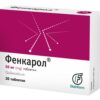
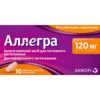
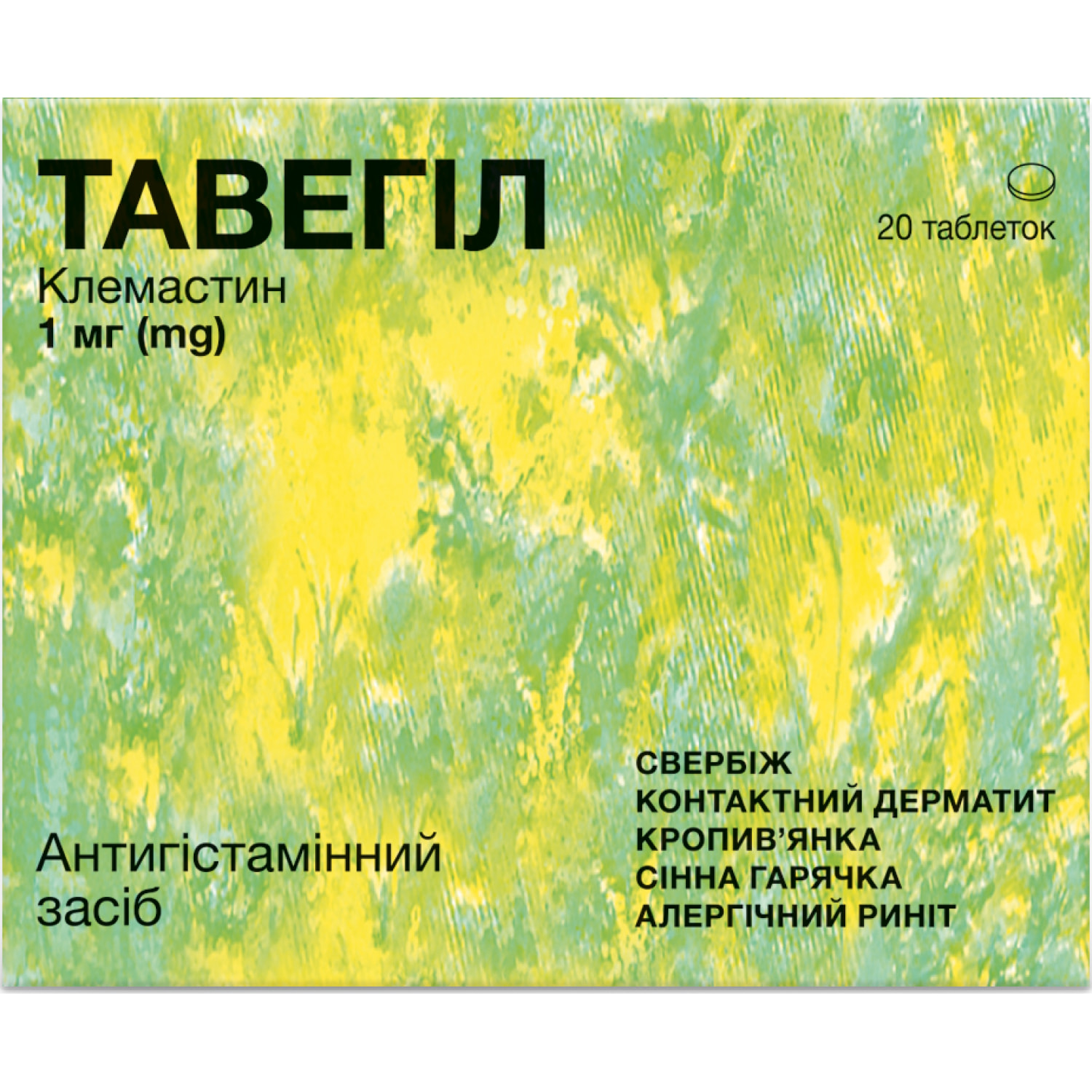
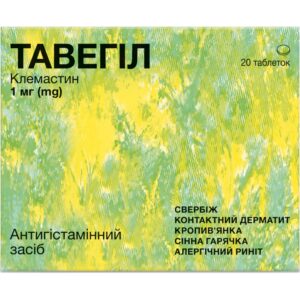

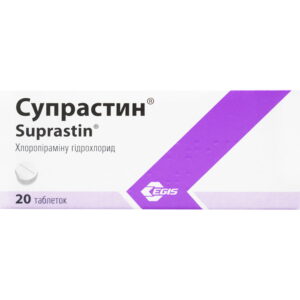
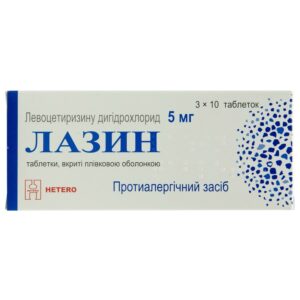
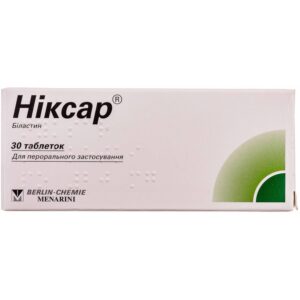
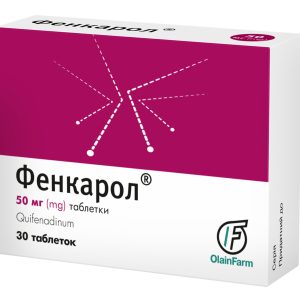
Reviews
There are no reviews yet.